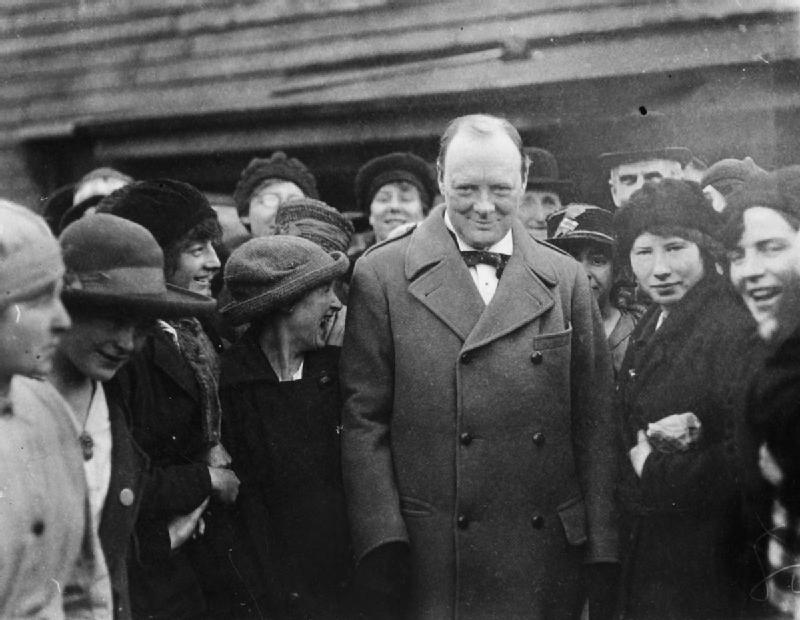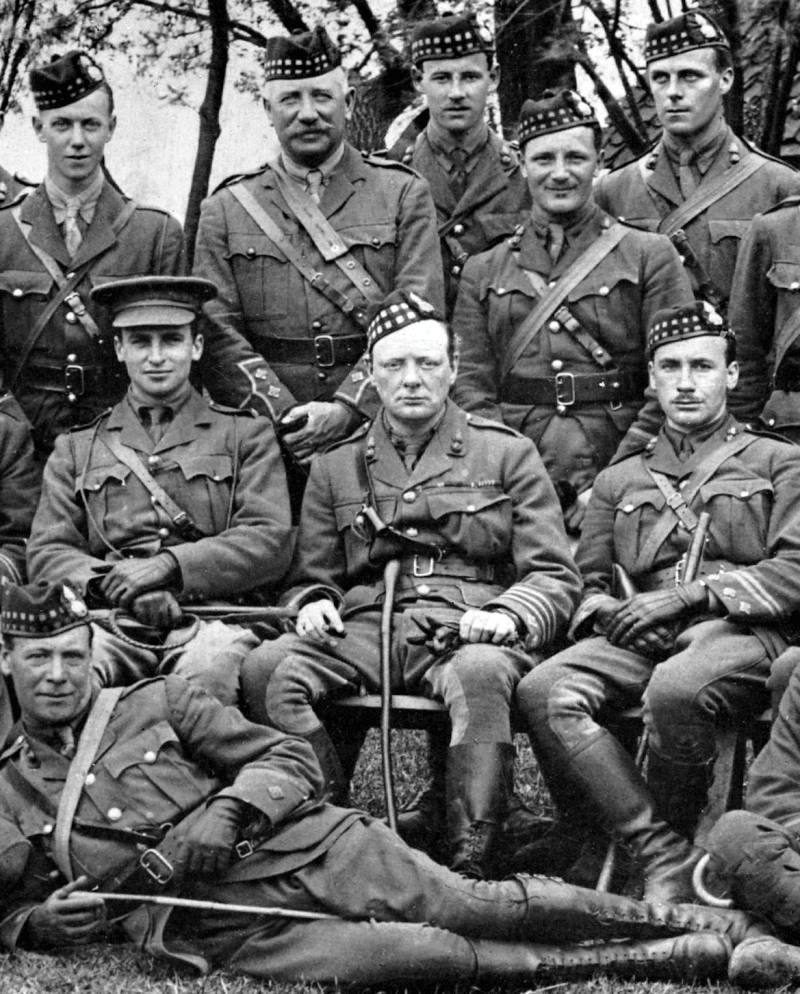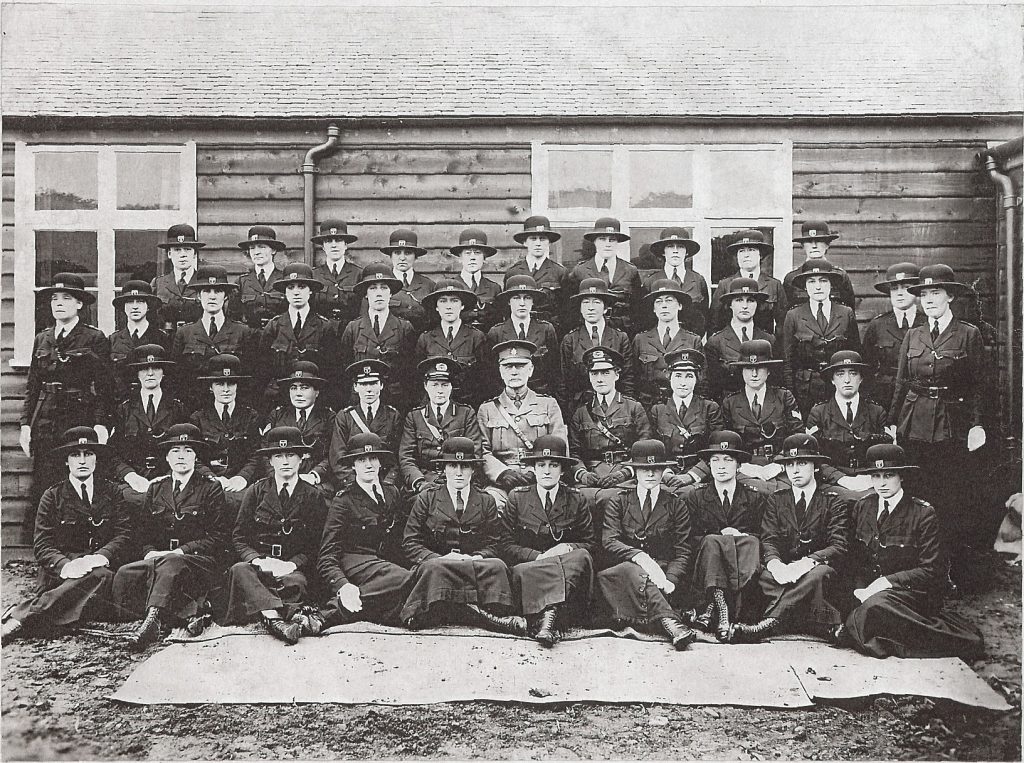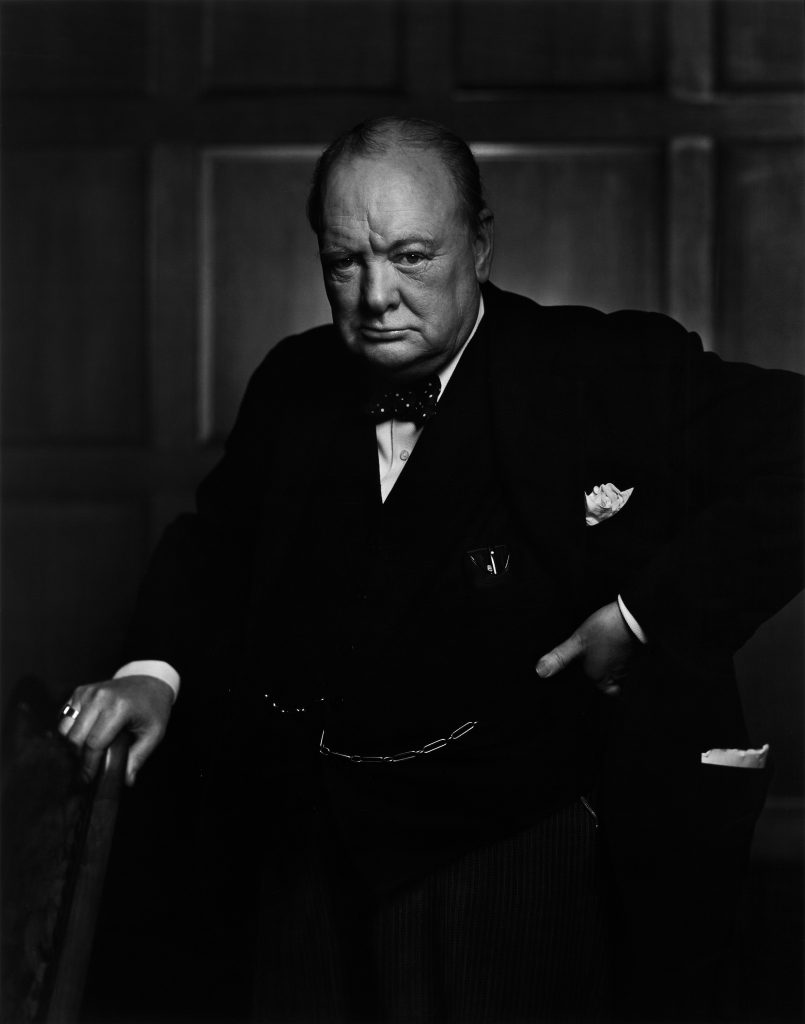
Researched and written by Mohammed Binghulaita Alghfeli.
Introduction
Winston Churchill is famous for being the British Prime Minister during the Second World War. As a wartime Prime Minister, Churchill is credited for galvanising Britain and her allies to defeat Nazi Germany. However, some people do not know that Churchill was also heavily involved in the First World War as a Minister of Munitions. This article focuses on the role of Churchill as a Minister of Munitions from 1917 to 1919. As a Minister of Munitions, Churchill was responsible for, among other things, the oversight of Factory Gretna. Churchill enjoyed success as Minister of Munitions, which saw him being promoted to Secretary of State for Air and War at the end of the First World War in 1919. The article also examines the influences of Factory Gretna on Churchill’s views on gender equality.
Background: 1915-1917
At the beginning of World War One, Churchill served as the First Lord of the Admiralty. According to Greenhalgh (2007), in 1915, Churchill planned and orchestrated the Dardanelles naval campaign and the military landings on Gallipoli. However, the Dardanelles naval campaign and the military landings on Gallipoli were both a failure that led to the demotion of Churchill and his resignation from the government. The ministerial appointment as Minister of Munitions was Churchill’s first role on his return to government.

Churchill also saw active service during WW1. He is pictured here with the 6th Royal Scots Fusiliers at Ploegsteert on the French-Belgian border. Photo is in public domain.
The appointment of Churchill as Minister of Munitions was greeted with hostile comments from newspapers and members of parliament. The Dardanelles and the Gallipoli failures had tainted Churchill’s reputation to the extent that he was viewed by several MP’s as incompetent (Pelling, 1989). Pelling (1989) notes that the Secretary of War in 1917, Lord Derby, threatened to resign when he heard that Churchill had been appointed Minister of Munitions. The Colonial Secretary, Walter Long, wrote to the Prime Minister expressing grave concerns regarding the appointment of Churchill as Minister of Munitions (Pelling, 1989). The prime minister, Lloyd George, later wrote that his decision to appoint Churchill as the munitions minister nearly collapsed the government (Pelling, 1989).
Churchill was shocked by the negative reaction to his appointment as Minister of Munitions. According to Pelling (1989), Churchill had not realised how unpopular he was. However, Churchill did not allow his unpopularity to affect his job performance. The Cabinet Secretary in 1917 noted that a few days after Churchill’s appointment back in government, he looked like a different man (Pelling, 1989). He used his previous failures in government in 1915 as motivation to succeed on his second attempt in government (Greenhalgh, 2007).
Ministry of Munitions: 1917-19

The Minister of Munitions Winston Churchill meets women workers at Georgetown’s filling works near Glasgow during a visit in October 1918. Photo credit: https://www.iwm.org.uk/collections/item/object/205022351
Greenhalgh (2007) notes that the Ministry of Munitions was created in 1915 in response to the Shell Crisis of that same year. In 1915 there was a strong newspaper criticism of the government because the army was experiencing a shortage of artillery shells at the war front. On 2 July 1915, the Liberal government passed the Munitions of War Act (1915) to ensure an adequate supply of artillery munitions (Greenhalgh, 2007). The Munitions of War Act (1915) paved the way for creating the Ministry of Munitions, with David Lloyd George being the first person to lead the ministry.
Although Churchill was Minister of Munitions in the closing stages of World War One, he played a huge role in ensuring that Britain and her allies had enough ammunition to win the war (Maurer, 2012). One can argue that the experience that Churchill amassed as the Minister of Munitions helped him in his later role as a wartime Prime Minister. As Minister of Munitions, Churchill had seen the importance of having local ammunitions manufacturing capacity and how that could be used to win a war. When the Second World War started, Churchill quickly ramped up local production of ammunition and other equipment for the war effort using the experience acquired as Minister of Munitions at the tail end of World War One.
Factory Gretna and Gender Inequality
Churchill became the Minister of Munitions on 17 July 1917 (Dockter, 2011). As a Minister of Munitions, Churchill was responsible for overseeing and coordinating the production and distribution of munitions for the successful execution of the war effort. One of the ammunitions factories set up during World War II was Factory Gretna. Therefore, as Minister of Munitions, Churchill was responsible for ensuring that Factory Gretna was operating as planned. Churchill was also responsible for managing labour issues at Factory Gretna, as evidenced by a letter written on 14 November 1918 by the Women Police Service asking for a salary raise. The Women Police Service requested Churchill increase their salaries by at least 10 shillings per week in the letter.
The Women Police Service at Factory Gretna argued that they deserved a salary increase because men doing the same job had been given a wage increase. In addition, those men were also paid more than the women. Therefore, the Women Police argued that it was unfair that men were being paid more than women. Moreover, the women pointed out that men were given equipment for free while women had to pay for it, which further reduced their wages.

A photo of the women’s police unit at HM Factory Gretna during WW1. Photo held in The Devil’s Porridge Museum’s archive collection.
The letter by the Women Police Service should be seen in the context of the early 20th century when women were expected by society to stay at home or if they chose to work to accept the conditions as offered. On the other hand, the women suffragette movement in Britain was getting strong and challenging gender inequality in all spheres of life. Therefore, when Churchill received the letter from the Women Police Service asking for a salary increase and similar conditions of service with that of men, that will have challenged Churchill’s beliefs.
According to Roberts (2012), Churchill is often portrayed as a male chauvinist because of his opposition to women’s right to vote when he was the Home Secretary between 1910-1911. As a result, Churchill was a frequent target of protest by suffragettes (Roberts, 2012). Churchill did vote for female enfranchisement in 1917, but that did not change how suffragettes viewed him. However, that did not stop the Women Police at Factory Gretna from petitioning him to solve gender inequality issues. Perhaps the Women Police at Factory Gretna saw Churchill’s vote for female enfranchisement as a sign that he might have some sympathy towards gender equality. However, it is also possible that Women Police at Factory Gretna petitioned Churchill not because of his expressed views on gender inequality but because he was the government minister responsible.
However, what is without question is that Churchill’s views on gender equality softened when he became a wartime Prime Minister. Lee and Strong (2018) note that Churchill’s views on gender equality had changed significantly by the time the Second World War began. Perhaps the petition by the Women Police at Factory Gretna in 1918 played a part in changing Churchill’s views on gender equality.

Photo credit: Yousuf Karsh. Library and Archives Canada, e010751643. 1941 portrait taken by Yousuf Karsh.
Conclusion
The article discussed the life of Winston Churchill as Minister of Munitions at the tail end of World War One. Churchill’s appointment back to the government in 1917 came after his dismissal after the military failures at Dardanelles and Gallipoli. The appointment of Churchill as Minister of Munitions was greeted with hostile comments from newspapers and members of parliament. However, Churchill showed great character to accept the appointment despite strong opposition and performed exceptionally well. His exceptional performance was rewarded by being appointed Secretary of State for Air and War at the end of the First World War in 1919. One can argue that Churchill’s good performance as Minister of Munitions relaunched his political career, setting him up to be the wartime Prime Minister.
The article also discussed the challenges Churchill faced as Minister of Munitions. Churchill was faced with addressing the gender inequality issue at Factory Gretna. Churchill’s views on gender inequality were well known when he became Munitions Minister. However, his views on gender equality greatly evolved over time. There is a possibility that the petition by the Women Police Service at Factory Gretna could have played a role in changing his views on gender equality.
Reference List
Dockter, W., 2011. The Tale of Two Winstons. The Historian, Autumn, pp. 10-14.
Greenhalgh, E., 2007. Errors and Omissions in Franco–British Co-operation over Munitions Production, 1914–1918. War in History, 14(2), pp. 179-218.
Lee, C. & Strong, P., 2018. Women in War: From Home Front to Front Line. London: Pen and Sword.
Maurer, J., 2012. Winston has gone mad’: Churchill, the British Admiralty, and the Rise of Japanese Naval Power. Journal of Strategic Studies, 35(6), pp. 775-797.
Pelling, H., 1989. Munitions. In: Winston Churchill. London: Mcmillan, pp. 229-248.
Roberts, A., 2012. Churchill The Wartime Feminist. [Online]
Available at: https://winstonchurchill.org/publications/churchill-bulletin/bulletin-048-jun-2012/churchill-the-wartime-feminist/
[Accessed 1 March 2022].
Toye, R., 2020. This famous island is the home of freedom’: Winston Churchill and the battle for ‘European civilisation. History of European Ideas, 46(5), pp. 666-680.

